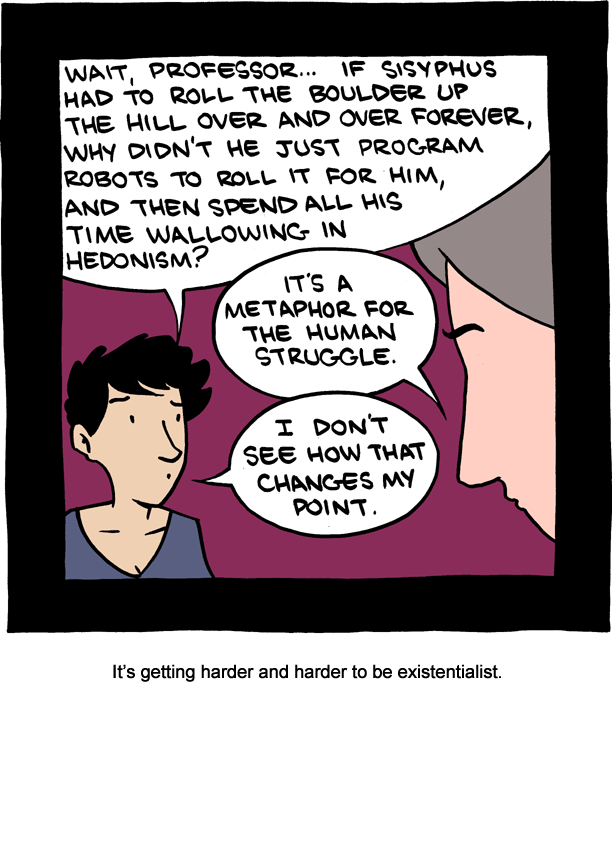We began writing our first essay on Friday, spending most of the hour bringing ideas together into outlines, troubleshooting thesis statements, and collecting evidence. Our endeavors were focused on one of two questions:
- Why does Victor react to his creation the way that he does?
- Why is the novel’s subtitle “The Modern Prometheus”?
You should finish this essay this weekend and read through chapter 14 of the novel.
As you work on this essay this weekend, remember that this is not meant to be a final draft. In fact, we won’t be making a final draft of this essay at all; it is your first major step in answering our overall question: What makes Mary Shelley’s Frankenstein Romantic?
As you begin writing, keep in mind three questions:
- In one sentence, what do I want my audience to understand/believe after reading this? That’s your thesis statement. It will change as you write your paper—don’t worry about that.
- What things do my audience need to know in order to understand/believe my thesis? These things are your topic sentences, and they usually come from your “Literary Connections” in your journal. If they are things you merely pulled from the text, like “Victor is afraid of his creation,” it is not a topic sentence, but a quotation or paraphrase. Couple it with one or more quotation or paraphrase (like “Burke argues that the root of the sublime is fear”) and bring them together: “Victor’s reaction to his monster’s awakening seems to illustrate Burke’s understanding of the sublime.” That is a topic sentence.
- What bits of information from the text do your audience need to support your topic sentences? These will be your quotations and paraphrasing (cite both).
An outline of the above would look like this:
Thesis: Frankenstein’s reaction to his creation can be better understood in the context of Edmund Burke’s beliefs about the sublime and the beautiful.
I. ((One of my answers to the second question above; note that in an actual outline there must be more than one major point.))Â Victor’s reaction to his monster’s awakening seems to illustrate Burke’s understanding of the sublime.
A. Victor is afraid of his creation (Shelley 42).
B. Â Burke argues that the root of the sublime is fear (13).
II. [Another argument in support of my thesis; likely something about the beautiful.]
This is a very simple outline, but follows the rules we discussed in class:
- Cited material is located only at the lowest level. (The rightmost indentation.)
- The points of higher levels are arguments (things that someone may disagree with), not synopses or restatements of plot points.
- Every level has at least two points. (Every “I” has a “II,” every “A” has a “B.”
All of the above may be a lot to take in, but we will discuss your process and ideas on Monday. If you have a question in the meantime, post a comment below or send me an email.

